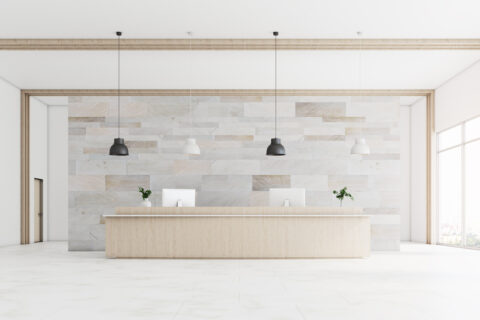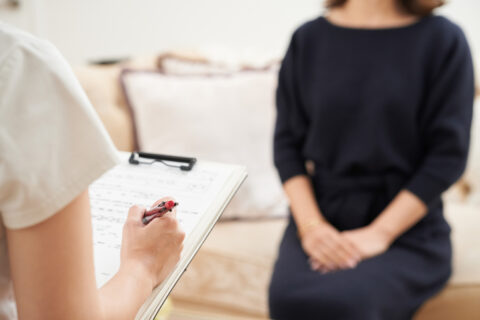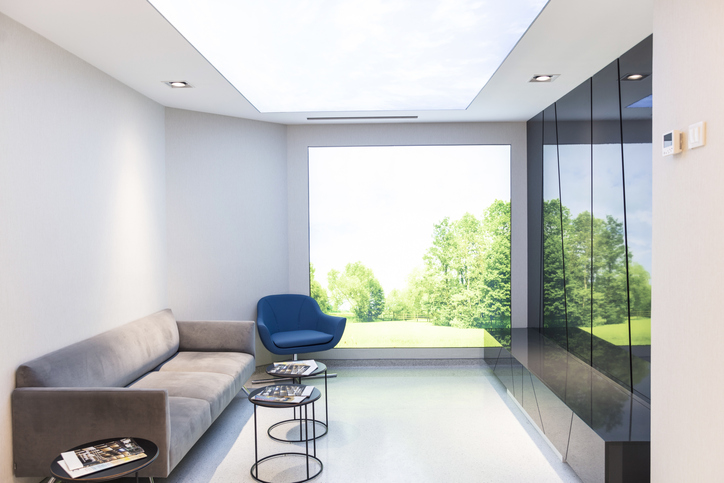For women who lead busy daily lives, it is easy to put off getting physical checkups. However, regular health checkups are an essential step for early detection and prevention of illness. In particular, women who do not belong to a company or housewives have few opportunities to receive medical checkups, which can lead to missed health problems. In addition, understanding the state of one's health is closely related to beauty and aging care.
Here we provide a thorough explanation of the optimal frequency of health checkups for different ages and purposes, and show you how to balance health and beauty in your busy life. Get the right knowledge and review your own health care today.

Graduated from the Faculty of Medicine, National Kumamoto University. After serving as the director of major beauty clinics in Japan, etc., he opened Aladdin Aesthetic Clinic in 2023. He is a professional in aesthetic medicine with a doctorate in anti-aging research and many years of experience. With the motto of "Toward the realization of cosmetic medicine without lies," he aims to be the "Only One" together with his patients.
What is the importance of a physical examination and what are its three benefits?
A physical examination is not just an annual event, but can be considered a kind of "good luck charm" to help you face your own body and protect your future. The first and most important benefit is the early detection of disease.
For example, lifestyle-related diseases such as hypertension and diabetes progress without subjective symptoms. By the time they are noticed, serious complications such as arteriosclerosis and myocardial infarction may occur. In addition, breast cancer and cervical cancer in women are known to have a high cure rate if detected at an early stage. Regularly undergoing these checkups is the best way to quickly detect abnormalities in the body and begin appropriate treatment.
A health checkup is also a tool that allows you to visualize your health condition through numerical values. For example, if the results show that your blood glucose level is a little high, you can review your diet and exercise habits at that stage. Prevention is much easier and more economical than treating illness after it has occurred.
| health index | ideal value | Numbers to note |
|---|---|---|
| blood pressure | 120/80 mmHg or less | 140/90 mmHg or higher |
| fasting blood sugar level | 100 mg/dL or less | 126 mg/dL or more |
| BMI (Body Mass Index) | 18.5 to 24.9 | 25 or more |
Of course, good health naturally shows up in skin tone and hair luster. For example, anemia can cause a pale complexion and dry hair, and poor liver function can lead to rough skin. Regulating the inside of the body through health checkups will ultimately lead to beauty benefits as well. Health is the basis of beauty.
Frequency of health examinations by age and purpose
Once you understand the importance of a physical examination, the next question you may be asking is, "How often should I get one?" The next question may be, "How often should I get a checkup?
The optimal frequency of visits depends on age, lifestyle, and the purpose of the examination.
From young people in their 20s to those in their 60s or older with more life experience, know the frequency of health checkups appropriate for each age group to effectively manage their health. By making good use of free checkups by local governments, regular checkups at work, and even checkups specific to women, you can continue to do so without burden.
20s and 30s|First step in noticing changes in the body
In our 20s and 30s, we tend to be less conscious of our health, thinking that we are still "fine. However, disrupted lifestyles and stress from work and family can take a toll on the body without being noticed. Having a health checkup during this period can lead to early detection of lifestyle-related diseases and avoidance of future health risks.
Even healthy 20- and 30-somethings should have a basic physical examination once a year. By recording data on a regular basis, it is easier to notice even the slightest changes.
Cervical cancer is a disease that can be cured if detected early. If you have had sexual intercourse, HPV testing (human papillomavirus test) can be used in combination for more accurate screening.
40s and 50s|Strengthening of lifestyle-related diseases and cancer screening
Approaching one's 40s is a time when the body's basal metabolism begins to decline and health risks increase dramatically. Many people neglect their own health care as their work and family responsibilities increase.
However, early detection and prevention of lifestyle-related diseases and cancer is a major key in this age group. 40s and 50s should consider semiannual checkups depending on their lifestyle and physical condition, in addition to annual checkups.
This is especially true for women around menopause, a time when the hormonal balance changes significantly. Since bone density begins to decline as well, it is reassuring to add an osteoporosis test.
Over 60s|Total health checkup of the whole body
As you enter your 60s, it is essential to take steps to extend your healthy life expectancy (the period during which you can live independently). Make sure to detect diseases early through regular health checkups and manage your health in cooperation with your doctor. Since illness progresses quickly in the elderly, consider seeing a doctor every six months if necessary.
Use workplace and municipal health checkups wisely.
Although health checkups may seem expensive, many municipalities actually offer free health checkups. For example, specified checkups and cancer screenings are often subsidized by each municipality. In most cases, if you do not have the opportunity to receive regular checkups at work or other places and are under 40 years of age, they are free of charge.
While company employees are required by law to undergo "periodic medical checkups," nonemployees and housewives can also manage their health without burden by taking advantage of the local government system.
When to get a physical examination and appropriate test items
You may be asking yourself, "Now that I know how often I should get a physical, when should I get one?" Many people may have such questions. However, by taking a medical checkup at the right time, you can obtain more accurate results.
In addition, being aware of age- and risk-appropriate examination items will enable more effective health management. Here, we will explain in detail the timing of health checkups and necessary test items, as well as what you should do to prepare before the checkups.
When is the best time to avoid and when is the best time to get a physical examination
The first thing to avoid during a physical examination is the end of the fiscal year and busy periods. During the changeover of the fiscal year and peak work periods, it is easy to become mentally and physically tired from the busy schedule. Continued stress and lack of sleep can cause blood pressure to appear higher than normal and blood sugar levels to be disturbed.
Forcing yourself to undergo a medical checkup because you are busy but it is important to check your health is not the end of the world if the results of the examination are affected. To make the most of your health checkup, choose a time when you are in good physical and mental condition.
Another good time to avoid gynecological examinations is during menstruation. During menstruation, women are more likely to have their blood and urine test results affected by changes in hormonal balance.
For example, anemia values may be worse than normal or urine tests may show abnormalities, making it difficult to obtain accurate data. Furthermore, cervical and breast cancer screenings are also best avoided during menstruation, as test results may be inaccurate.
About a week after menstruation is considered the best time to see the doctor, and more reliable results can be obtained by seeing the doctor when the patient's condition has stabilized.
Recommended times are the start of the fiscal year and your birthday month. The start of a new fiscal year and the month of one's birthday are easy to reset one's mind and motivate one to check one's health for the year. Another benefit of having a checkup at the same time every year is that it naturally becomes a habit. Especially for busy people, setting a rule for yourself that this month is health checkup month will help you avoid forgetting to have a checkup.
Another important thing is to choose a time when your physical condition is stable. If you receive a medical examination when you have had enough sleep and your diet is in good shape, you will obtain more accurate test results because your physical condition is stable. For example, it is important to choose a time when your daily life is stable, not after a trip or a series of drinking parties.
Age- and risk-based test items
The items you should undergo for a physical examination depend on your age and health risks. Below is a summary of the main examination items and their purposes.
| checklist | Age Range | Content and Objectives |
|---|---|---|
| blood test | For all ages | Check liver function, kidney function, lipid abnormalities, and blood sugar levels. Effective for early detection of lifestyle-related diseases and diabetes. |
| gastric cancer screening | 40s and over | Barium examination and gastric endoscopy to check for gastric cancer and gastric ulcer. |
| breast cancer screening | 40s and beyond | Mammography and ultrasound for early detection of breast cancer. |
| cervical cancer screening | 20's to 30's | Cytological examination for early signs of dysplasia and cancer, as well as for HPV infection. |
| colorectal cancer screening | 40s and over | Fecal occult blood test and colonoscopy to check for colorectal cancer and polyps. |
| bone density test | 50's to 60's and older | Check bone condition to prevent osteoporosis. |
| electrocardiogram | 40s and over | Check the risk of arrhythmia and cardiac disease. |
It is especially important for women to be aware of breast and uterine cancer screenings. Also, if you are at risk due to your lifestyle or family history, consult with your physician and consider adding additional test items.
What to Prepare Before Physical Examination for Accurate Results
Physical examinations are an important opportunity to accurately assess the condition of the body and to detect and prevent illness in its early stages. However, a lack of preparation prior to the checkup can lead to errors in the results or necessitate retesting. To avoid wasting your health checkup, make sure you are well prepared before the examination.
The first thing to keep in mind is the precautions regarding food and beverages. On the day before the physical examination, try to choose a meal that is as easy to digest as possible and have a light dinner. If you have a stomach examination, the rule of thumb is to finish eating by 8:00 p.m. the night before and avoid fatty foods and alcohol.
This is because alcohol can easily affect liver function tests and correct values may not be obtained. In addition, you are generally required to fast on the day of the test. If blood or stomach tests are included, you should not have breakfast. However, in some cases, you may drink water or tea, so please check the instructions on the medical examination guide in advance.
Paying attention to what you wear and what you bring with you will help ensure a smooth inspection on the day of your visit. It is very important to choose clothing that is comfortable to move in. For example, if an EKG or ultrasound is scheduled, a dress or tight clothing will make it difficult to proceed with the examination. It is advisable to choose clothing that has a separate upper and lower section and is easy to put on and take off.
Furthermore, if you are taking medications on a regular basis, it is always necessary to check your medication regimen. It is important to consult with your doctor in advance because some medications may require you to temporarily stop taking them before the examination.
For example, diabetes medications that affect blood glucose levels and blood thinners may affect test results, so care should be taken. However, it is dangerous to discontinue medication on your own judgment, so be sure to ask your doctor for instructions. Also, if medication is necessary, inform the person in charge of the examination so that accurate diagnostic results can be obtained.
summary
A physical examination is an important step in protecting your future self. Knowing the appropriate frequency of checkups according to age and lifestyle can lead to early detection and prevention of illnesses, which can also have a positive impact on beauty and aging care. It is important for women who do not work in a company or busy housewives to be aware of the importance of prioritizing their own health.
Take advantage of the free health checkups offered by local governments and facilities that provide nighttime and holiday services, and feel free to have a health checkup. Regular checkups are not only the key to good health, but also the secret to maintaining your personal beauty. Take the next step and choose the health checkup plan that is right for you and take action. It is no exaggeration to say that your future health and beauty depends on the choices you make today.
At Aladdin Aesthetic Clinic, based on our many years of experience in cosmetic medicine and cosmetic dermatology and the knowledge of our doctoral degree, we provide counseling that aims to be "only one", offering the best treatment for each person we meet. We offer only the necessary treatments without any unnecessary information or suggestions.
Feel free to use our official LINE account for 24-hour counseling and reservations. Please feel free to contact us for free counseling for the first time or if you have any concerns.






